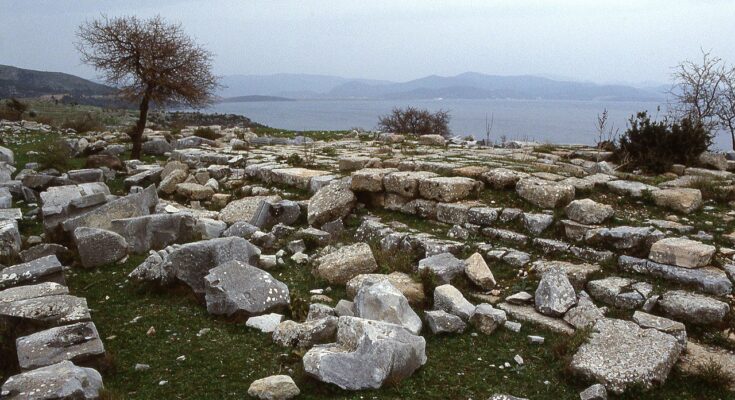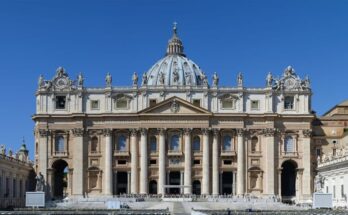Archaeologists from the University of Michigan have discovered a hoard of Persian gold coins in the ancient Greek city-state of Notion, on the west coast of Anatolia in Turkey.
The gold coins were found deposited in a small ceramic pot at a large courtyard house in the center of the ancient city.
Most of the coins are known as darics, a type of coin issued by the Persian Empire, which were likely minted in the 5th century BC at Sardis, the capital of the Persian satrapy of Lydia.
According to the archaeologists, the coins depict a kneeling archer, a typical characteristic design of the Persian daric, likely intended to be used as payment for mercenary troops.
The coins have been arranged in a chronological sequence by analyzing the stylistic differences, which have played an important role in independently dating other objects associated with the hoard.
Christopher Ratté from the Kelsey Museum of Archaeology and director of the Notion Archaeological Project, said: “The discovery of such a valuable find in a controlled archaeological excavation is very rare.”
“This hoard will provide a firm date that can serve as an anchor to help fix the chronology of the (entire sequence of coins),” added Ratté.
Ancient Greek city located in Ionia
Ancient Greek Notion (Νότιον, ‘southern’) was a Greek city-state and is located about 50 kilometers south of Izmir in modern Turkey.
Notion was located on a hill from which the sea was visible; it served as a port for nearby Colophon and Claros, and pilgrims frequently passed through on their way to the oracle of Apollo at Claros. There are still remains of the defense walls, necropolis, temple, agora, and theater.
Notion is an extraordinary archaeological resource: a well-preserved and almost completely unexplored ancient city, lying on the seaside in western Turkey near several other major archaeological sites, including Klaros, Kolophon, Metropolis, and Ephesus.
Notion is located in Ionia, a region encompassing the central portion of the Aegean coast of Turkey and the Greek islands of Samos and Chios – a natural borderland with a long tradition of shifting cultural identities.
An archaeological survey project was started by the University of Michigan and Brown University at Notion in 2014.
Partly because Notion does not have an extant Classical temple or other signature monument, the city had never been the object of systematic archaeological investigation.
Even a cursory inspection of aerial imagery shows that Notion is largely free of vegetation and modern buildings, and so exceptionally well suited to archaeological survey.
The Notion Archaeological Survey is focused primarily on mapping and documentation of visible remains, remote sensing, geophysical prospection, collection and study of surface finds, and the development of a long-term conservation and management plan.



